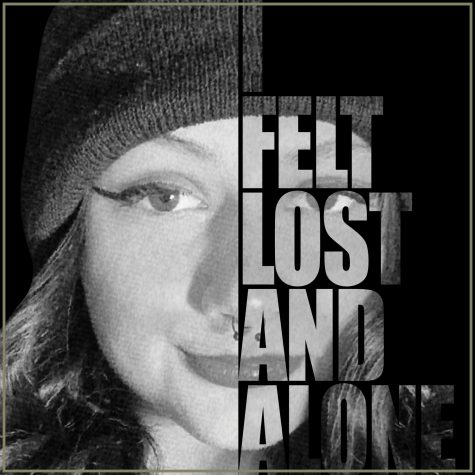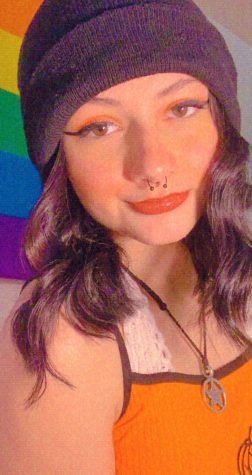Learning to live with the endless loop of anxiety and depression
Everyone’s eyes stare at me as the room begins to spin. I can’t seem to find any air; it’s so hard to breathe. “Deep breath in, and deep breath out,” someone says. I can’t seem to figure out who they are. They grab my hand and lead me out of the lunch room and into the girls bathroom. Tears are already streaming down my face, but as soon as the door closes behind us, I completely break down.
I was diagnosed with anxiety when I was 14 years old. Broadly, anxiety is described as a mental illness in which your body and mind are hyperreactive in situations that seem dangerous or stressful. I define it as something that makes my days full of agitation and nervousness. I always knew there was something about me that was different from a “normally” functioning person, but I kept it to myself. Nobody ever spoke out about their mental illnesses, and I figured I shouldn’t either. However, keeping it to myself only made it harder to function in my day to day life.

Throughout the last four months of seventh grade, I felt lost and alone. My anxiety made me so overwhelmed at school that I’d have to run to the bathroom and calm myself down before I started to have a panic attack. I was dealing with this all by myself: none of my friends knew about my diagnosis because I was terrified of them looking at me differently. Eventually, in order to control myself, I developed a series of specific but harmful behaviors. I would pinch my arms and legs with my finger nails until the skin turned bright red, tap my right leg until it started to tingle, and bite my bottom lip, sometimes even making it bleed. My anxiety was manipulating my mind into hurting my body, and I knew that I had to tell someone before I reached my breaking point. What I didn’t know was that I was already too late.
I was in my seventh grade French class when I could feel my heart racing. I didn’t understand what was going on: I wasn’t scared or overcome by any jittery feelings. I tried to breathe, taking deep breaths in, holding, and releasing like I had practiced. I was starting to calm down when my partner next to me asked me if I was ok. I tried to respond, but I couldn’t talk. It was like my mouth was glued shut and the only thing I could manage to do was start crying uncontrollably, which disrupted my calming breathing pattern. My mind was racing and my eyes couldn’t stay focused on a single object. I knew that I needed to leave, and fast. I got up, ran to the teacher, and barely mumbled the words, “can I use the restroom?” As I left, everyone was staring at me; it felt like their eyes were watching my every move. When I finally got to the bathroom, I sat down and put my head in my knees and just waited for it to all go away. There was only one thing racing through my mind as I sat on the cold tiled floor: now, everyone knows.
I had my next major doctor’s appointment to review my anxiety and how everything had been the next year, in 8th grade. After some long conversations,I received a new diagnosis: not only did I have anxiety, but I also had depression. My doctor explained to me that when my anxiety was triggered or acted out, it fed into my depression, which then fed into my anxiety more, causing an endless loop. My brain was constantly fighting itself, leaving me to deal with the end disaster. I was scared, upset, and most of all confused about why my own mind was functioning like this. I received a prescription for Prozac, which was supposed to help with both of my mental illnesses. It wasn’t easy taking the medicine: I experienced a good amount of side effects, including headaches, loss of appetite, nausea, drowsiness, and many more more. Despite this, I pushed through and took it anyway. I wanted to feel better, maybe even normal.
Going into ninth grade, my first year of high school, I was fearful of all the new people and a different school. However, after the first week of school, I had already talked to new people and found my way from class to class. Some of the new people I started conversing with were even like me and had mental illnesses as well. I felt comfortable and more accepting of myself knowing that I wasn’t the only one going through this. Now, sophomore year, I have a much greater awareness of the fact that mental illness is something many people have, and some don’t even know it or have the words to describe it. My wish is that other students don’t feel isolated like I did, and that they know that it’s ok to be afraid or nervous with what goes through their minds. Most importantly, they need to see that they’re not alone and that there are people out there that can help, even if it’s just to listen.

Chloe Malik is a 16-year-old 10th grader. This being her first year, the J1 writer felt at home the minute she set her pen to paper. “Writing is one...



